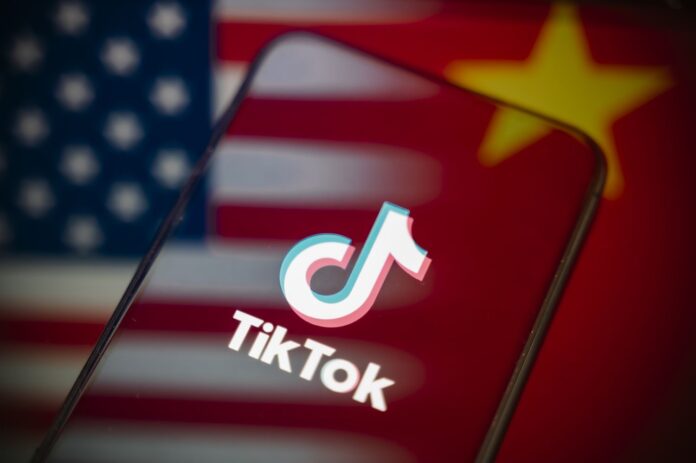Under the pretext of “data protection” and “national security,” the United States is preparing to seize control of TikTok. Behind the diplomatic smiles and triumphant communiqués lies a deeply asymmetrical power struggle, where Beijing appears to yield—or pretends to—in the ongoing technological cold war between empires.
A Deceptive Agreement Negotiated on Neutral Ground
On Monday, September 15, after two days of talks in Madrid, Washington and Beijing announced a framework agreement: TikTok will fall under American control. The script is familiar. Donald Trump, already campaigning in disguise, boasts on Truth Social about protecting “our young people.” Treasury Secretary Scott Bessent confirms a call between Trump and Xi Jinping scheduled for Friday to finalize the deal. Everything feels orchestrated—too orchestrated.
And yet, key details remain undisclosed. The so-called “private agreement” lacks substance. No clarity on who the new American owner would be. ByteDance hasn’t approved the deal. Nor have the Chinese authorities. They speak of a sale, but offer no mechanism, no guarantees, no timetable. We are asked to take at face value a deal that exists only in the mouths of U.S. officials.
The Stage-Managed Threat of a Ban
This TikTok standoff is nothing new. Since Congress passed a law in 2024, the app has been technically banned in the U.S., unless transferred to non-Chinese ownership. September 17 has become a symbolic deadline, extended three times by the White House, each time ramping up the pressure.
The narrative is tight: U.S. users must be shielded from Chinese influence via TikTok’s algorithm or data collection. Yet no proof has ever been produced to substantiate these claims. It’s a convenient digital boogeyman, serving Washington’s goal of uncontested tech dominance. That the U.S. might use similar tools to shape foreign opinion never seems to cross the minds of Western commentators.
Madrid, Geneva, London: The New Yaltas of Tech
Sino-American talks now avoid Beijing or Washington. Instead, they take place in seemingly neutral cities: Madrid this week, Stockholm or Geneva in previous rounds. These location choices are deliberate, designed to manage perception and avoid domestic scrutiny.
Chinese Vice Premier He Lifeng offered no statement after the talks. No rebuttal, no counter-narrative. It felt like a quiet surrender. Meanwhile, U.S. officials flood the media space, insisting “talks went very well.” This isn’t just a technological war—it’s a war over the narrative.
An Algorithmic Cold War on Multiple Fronts
TikTok is just one battlefield. On the same Monday, Beijing launched an antitrust investigation into Nvidia, accusing the U.S. chip giant of violating local competition laws—without providing details. This comes after China opened similar probes into U.S. semiconductor firms over the weekend.
Tariffs between the two giants have tripled in 2025 but are currently under a fragile truce. The supply chains are still snarled, with Beijing facing a creeping regulatory encirclement. Meanwhile, Washington continues redrawing the global economic map, one executive order at a time.
TikTok Is the Proxy, But Digital Sovereignty Is the Prize
What this half-baked TikTok deal reveals is not an American “victory,” but a carefully engineered weakening of Chinese tech influence. Beijing may be cooperating only to buy time or because it can no longer afford a frontal confrontation across all fronts. Washington, in contrast, acts with quiet confidence—armed with legal, political, and media superiority.
In this algorithmic war, where the rules are rewritten in real time, TikTok is merely a pawn. The real question is who controls the connected minds of the 21st century. For now, it’s the U.S. calling the tune—even when the DJ is Chinese.



